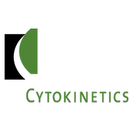You are now leaving XTANDI.com
The website you are about to visit is not owned or controlled by Astellas. Astellas are not responsible for the information or services on this site.

Aligned with our vision to turn innovative science into value for patients, Astellas has focused on exploring new therapeutic areas through a combined approach of homegrown science, strategic partnerships and collaborations with external organizations, and dedicating resources with academia to further enhance our ability to generate potential new treatment options for patients.

As part of this approach, Astellas in 2013 formed a collaboration with Cytokinetics, Inc., a biopharmaceutical company dedicated to discovering and developing novel therapies for people with diseases that compromise key muscle functions.
Astellas and Cytokinetics partnered to advance therapies for diseases and medical conditions associated with muscle impairment and weakness, an area in need of innovation and novel therapies and a new area of focus for Astellas. Astellas’ work with Cytokinetics is in the early to mid-stage development across diseases and conditions of muscle impairment including spinal muscular atrophy (SMA), amyotrophic lateral sclerosis (ALS), chronic obstructive pulmonary disease (COPD) and limited mobility or frailty.
“The collaboration with Cytokinetics came to fruition based on Astellas’ capabilities, as well as the value we saw in combining the best talent with the best science to address a wide range of conditions,” said Makoto Kashiwa, executive director and head of the frontier diseases therapeutic area.
SMA is a severe neuromuscular disease that occurs in approximately one in every 6,000 to 10,000 live births each year and is one of the most common fatal genetic disorders. SMA manifests in various degrees of severity as progressive muscle weakness, resulting in respiratory and mobility impairment. Life expectancy and disease severity vary by type, with Type I patients having the worst prognosis, with a life expectancy of no more than 2 years. Type II, III and IV patients may have a potentially almost normal life span, but eventually suffer gradual weakness in the proximal muscles of the extremities resulting in mobility issues.
ALS is a progressive neurodegenerative disease that afflicts approximately 30,000 people in the United States and a comparable number of patients in Europe. Approximately 6,000 new cases of ALS are diagnosed each year in the United States. The average life expectancy of an ALS patient is approximately three to five years after diagnosis and only 10 percent of patients survive for more than 10 years. Death is usually due to respiratory failure because of diminished strength in the skeletal muscles responsible for breathing. Few treatment options exist for these patients, resulting in a high unmet need for new therapies to address functional deficits and disease progression.
COPD is a progressive obstructive lung disease that typically includes emphysema and chronic bronchitis. The disease is increasingly common and is the third leading cause of death in the U.S. behind cancer and heart disease. While it is estimated that more than 14 million U.S. adults have been diagnosed with COPD, it is widely underdiagnosed and up to 24 million Americans have evidence of impaired lung function. Therapeutic strategies for the treatment of COPD have primarily focused on improving lung function and addressing airflow limitations caused by bronchial obstructions. Meanwhile, a substantial unmet need for disease management strategies related to improved exercise tolerance still exists.
“Through our collaboration, we’ve learned so much about muscle disease, the patients living with them and the lack of therapies available,” said Kashiwa. “These diseases are debilitating. They not only take over a person’s body, but they affect their minds and relationships. We’re pleased to be working with an organization that can help us reach the muscle disease community and deliver innovative science that provides value to patients.”
“We share a commitment with Astellas to pursue research and development of skeletal muscle activators for people living with diseases of impaired muscle function who are in need of new therapies,” said Fady I. Malik, MD, PhD, Cytokinetics’ Executive Vice President, Research and Development.
Compounds from the collaboration that are being investigated include:
This collaboration has enabled Astellas to deepen our expertise in muscle disease and investigate compounds to continue to serve patients with unmet medical needs.
 |
Get only the email alerts you want.
For media inquiries and reporter requests, please email us at corporate.communications@us.astellas.com.
Our communications team will respond to verified media requests within 24-48 hours as appropriate.
If you are not a reporter and need assistance, please visit our contact us page that includes information for patients, healthcare providers and researchers.
This website is intended for U.S. residents only. This website contains information about products that may not be available in all countries, or may be available under different trademarks, for different indications, or in different dosages. Nothing contained herein should be considered a solicitation, promotion or advertisement for any drug including those under development. Any information on the products contained herein is not intended to provide medical advice nor should be used as a substitute for the advice provided by your physician or other healthcare provider.
The site uses cookies to provide you with a more responsive and personalized service and to analyze site traffic. By using this site, you accept our use of cookies as described in our privacy policy. Please read our privacy policy for more information on the cookies we use, the processing of your personal data and how to delete or block the use of cookies.